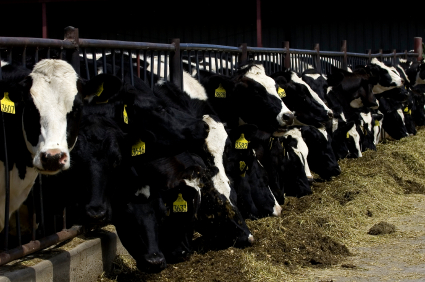Barry Estabrook has a piece up on the Atlantic reminding us that agriculture practiced on any scale anywhere in this country relies heavily on migrant — usually undocumented — laborers to perform the hardest, riskiest jobs. And sometimes they die.
[A]t about 4:00 in the afternoon of December 22, José Obeth Santiz Cruz, a 20-year-old youth from Las Margaritas in the state of Chiapas in southern Mexico, died after becoming caught in a manure-removal conveyer inside the barn of the Vermont farm where he worked. Because he lacked documentation, it took more than a week for officials to determine who he really was, how old he was, and where he came from.
Vermont likes to promote itself as a verdant, wholesome state with picturesque black and white Holsteins grazing on hillside pastures. But the postcard image hides an ugly truth. Santiz Cruz was one of 1,500 to 2,000 immigrant workers, most lacking legal papers, who toil invisibly behind the scenes in the Vermont’s beleaguered dairy industry, working 80-hour weeks and living in total isolation, often sleeping in the very barns with the cows they tend.
“Vermont’s dairy farms depend on migrant workers,” said Brendan O’Neill, coordinator of the Vermont Migrant Farmworker Solidarity Project. “But there is no dignity in performing important work for that amount of time and having to hide yourself, never seeing the light of day. These people live and work in the shadows.”
Once again, we learn that cheap food can have a steep human toll. Now, this shouldn’t be seen as an “attack” on Vermont or on the dairy industry (goodness knows bad publicity is the last thing it needs). Rather, it’s another reminder that there are no real reforms to America’s food system that don’t involve labor.
Naturally, this isn’t an East Coast phenomenon. High Country News had a startling indepth piece last summer about the West’s undocumented dairy worker problem — a USDA sociologist estimates that half of all dairy workers there are immigrants and HCN found 18 deaths among Western dairy workers over the last 6 years. Even in the dairy industry, this is a national issue.
I have the feeling, of course, that higher prices in exchange for better working conditions and agricultural labor market reforms is not a trade that Congress (or even most Americans?) will willingly make. The good news? President Obama has apparently committed to pursuing comprehensive immigration reform, presumably including a guest worker program, which would provide workers like Santiz Cruz with more protections than they receive now. The bad news? Agriculture has a long history of getting itself exempted from labor reforms. See New York State.
Oh, and if the first part of Estabrook’s story didn’t make you feel bad enough, this part should:
As a further grim reminder of how dispensable laborers are to modern agribusiness, there is some question about how the young man’s remains will be returned home for burial — an effort that could cost as much as $10,000. The Vermont Workers’ Center has started a memorial fund and is working with the Mexican consulate in Boston and the office of Sen. Patrick Leahy (D-Vt.), to get the body back to Las Margaritas.
Got guilt?



